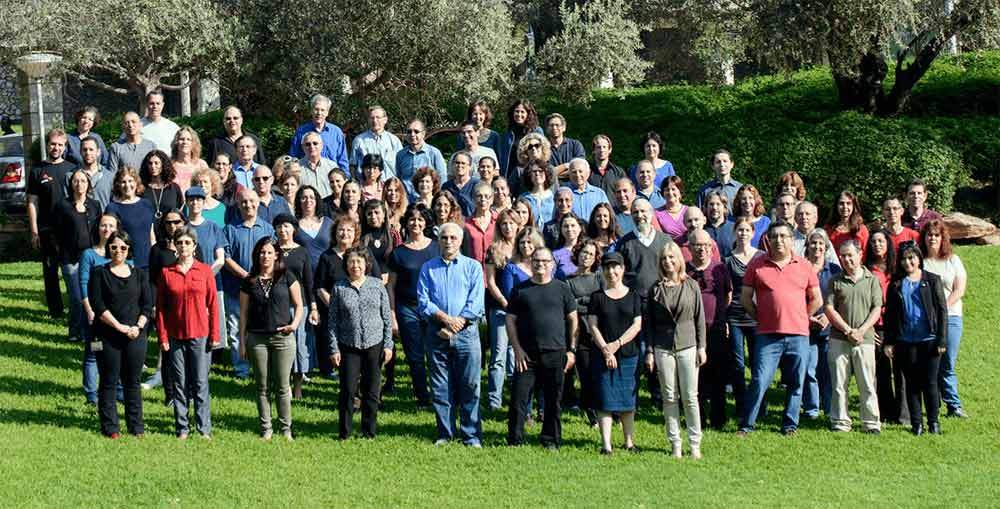Are you a journalist? Please sign up here for our press releases
Subscribe to our monthly newsletter:

There are today 178 staff scientists at the Weizmann Institute. These are the people – all PhDs, most with postdoctoral experience, some working within research groups, others heading support service units – who make the cutting-edge science happen at the Weizmann Institute of Science. Full partners in the scientific process, the staff scientists make their contributions in hundreds of ways, whether in guiding students, creating new experimental techniques and technologies, developing and carrying out research plans, planning conferences or teaching courses.
Weizmann Institute of Science President Prof. Daniel Zajfman points out that although the number of research groups at the Institute has remained stable, at around 250, the number of people who work at the Institute has grown from 3,000 to 4,000. “The significance of this number is that research groups require more support,” he says. “Add to that the technological advances in research tools, and the increasing complexity of modern research. Today’s labs need extensive knowledge and a very high level of expertise.”
“This arrangement doubles the intellectual capacity behind the research conducted at the Institute and leverages the work of its labs,” he adds.
In light of this contribution, we are presenting a new series: Staff Scientists. Originally published in a special issue of Hamachon magazine, each of these stories highlights the work of one staff scientist. They are as varied as the research at the Weizmann Institute, and each has a unique story to tell.
Dr. Ehud Fonio: What can we learn from ants?
Dr. Eyal Schejter: How do muscle fibers develop?
Dr. Daniel Lellouch: Getting people involved in science
Dr. Daniella Schatz: How do viruses infect marine algae that affect the entire planet?
Dr. Lorne Levinson: New instruments, from Weizmann to CERN
Dr. Daniela Novick: Basic research, saving lives
Dr. Tamar Paz-Elizur: Looking anew at the world of science
Dr Nir Kampf: Water as a lubricant
Dr. Ziv Porat: 5000 cells a second
Dr. Rivka Adar: Which cells give rise to recurring cancers?
Dr. Rachel Sarig: How can damaged tissue be safely repaired?
Dr. Sidney Cohen: How can we prepare students for the new age of nanotechnology?
Dr. Miriam Eisenstein: What makes proteins tick?
Dr. Ditsa Levanon: what directs the development of our "sixth sense?"